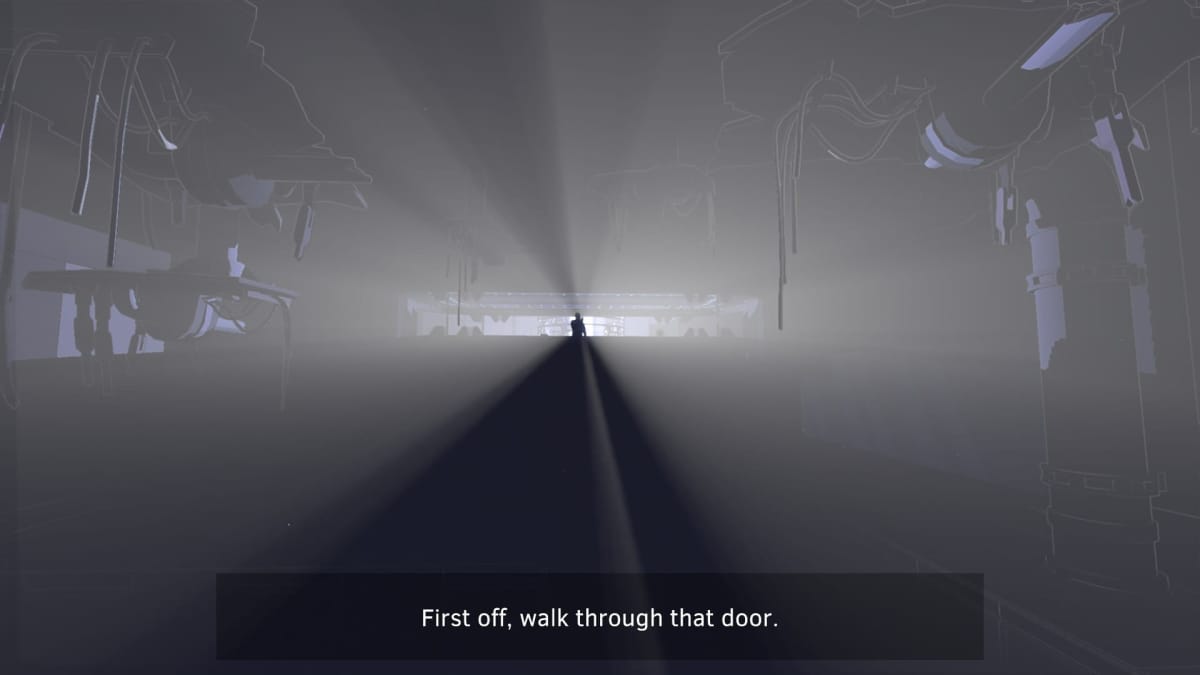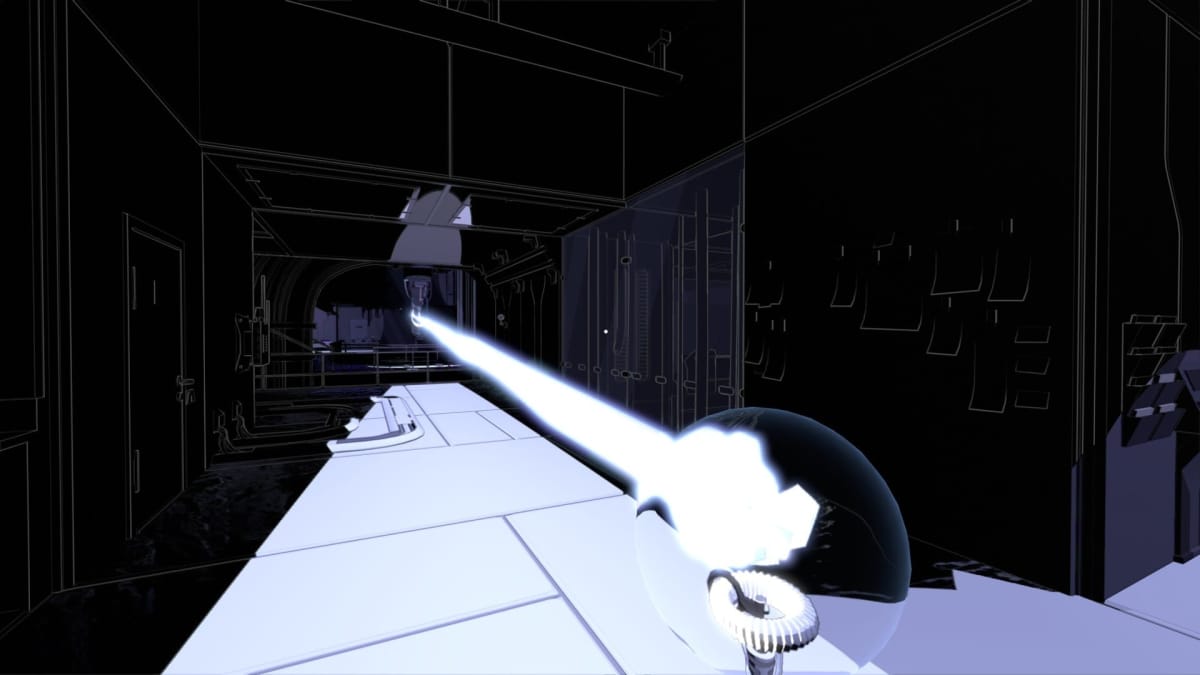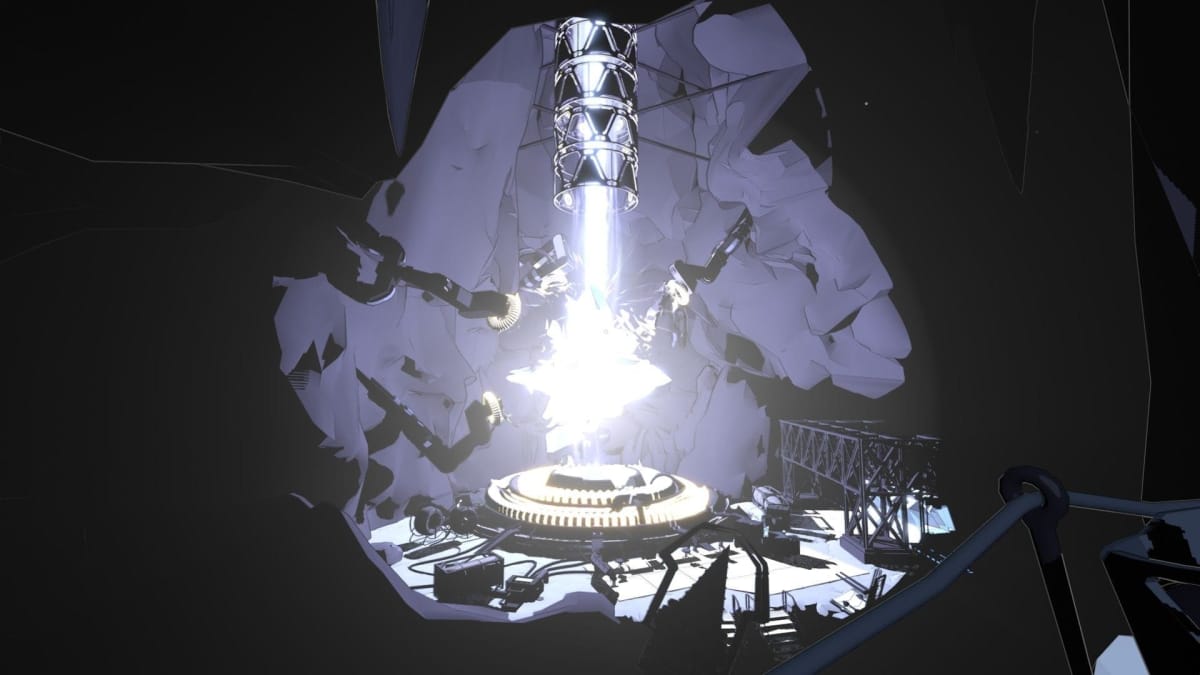Portal is a tough act to follow. I don't blame most devs for not trying, just like I don't blame so many devs for getting inspired by it. It really is one of the best first-person puzzle games, if not also one of the best games ever made. You can tell right away that Lightmatter is inspired by Portal (and if you can't tell, don't worry, there's a lot of Portal references.) However, it needs more than inspiration to really stand out. Does Lightmatter provide enough unique fun to be worth playing, or should you turn the lights out on this game?
You play as a mysterious person who wakes up in the middle of a facility called Lightmatter Technologies with no memory of how they got there. Lightmatter Technologies was on its way to creating an energy source breakthrough when something went horribly wrong. The facility you're in is now infested with shadows that consume all organic matter, meaning it's time for you to make a dramatic escape. With only Virgil, the CEO of Lightmatter Technology, as your guide, you'll be solving puzzles to escape. Lightmatter's story is a rather fun tale, enhanced by Dave Bateson's (whom you likely know best as Agent 47) fantastic voice acting. It manages to convey both excellent comedic timing and some great late game dramatic moments.
Fancy Lights for Fancy Flights

However, the real star of the show is the puzzles. Your goal is to provide light so you can get to each room's exit door. Touch the shadows, and you die. Simple enough, right? Of course, what seems simple quickly becomes less so. The shadows consume all, and figuring out how to get around them proves to be quite the challenge. Ultimately, you're handed two major tools in your quest to exit rooms: lamps and pylons. Lamps work about how you expect. You'll move them around, place them on the ground, and walk through the light they provide. Pylons can connect beams of light to each other that you can use to navigate, but at least one of them needs to be within view of an energy source at all times.
These two tools may not seem like much, but they're how you'll get through most of the game. At first, I worried this couldn't lead to much in the way of puzzles, yet I'm happy to say I was quite wrong. Each puzzle manages to challenge players in some new way, with just enough elements that made me stop and think. More than once I was experimenting with my tools, looking the map over and figuring out strategies. Then, a shadow-removing lightbulb would click over my head, I'd have my "Aha!" moment, and everything works fantastically. The way Lightmatter seemed to set puzzles up so you would come to these moments yourself is brilliant.
However, there's a bit of a strange split at work here. In the first half, you get all lamps, with the game going through various puzzles that slowly teach you different ways to use them. The second half introduces you to pylons, and from then on lamps are almost never seen again. It isn't until the very last puzzles that you get to use both lamps and pylons. There's no real good reason for this strange split, as it seems like the game's puzzle chops can only be better by having access to both tools.
Light Really Does Matter

This isn't even taking into account the final level, which suddenly and inexplicitly turns the game into a platformer. It's not an awful segment, but it certainly feels wonky and out of place. I understand it's trying to go for something more fast-paced, but it felt like several quick small puzzles could have achieved this much better than a platforming segment.
It took me about 5 or 6 hours to get to the ending, which is the perfect length for this type of experience. Just when I felt things were starting to drag, they changed up. Just when it felt like the mechanics were getting stale, I hit the end. Lightmatter is a well-paced adventure, and it is one I'm more than happy to have seen through to the end.
As should probably be expected, the light effects in Lightmatter really do steal the show. There's just something cool about shining light onto a new area and watching all the shadow retreat. However, there's one rather obvious compromise in that nothing in the world has any physics. With the exception of one garbage can (which you get an achievement for kicking as if highlighting that this is the one object in the game they put physics on), nothing in the world moves. It just feels off, like you're just sort of floating through the world rather than actually existing in it.
Lightmatter Review | Final Thoughts

Still, it's hard to hate Lightmatter for this. The game is clever, with some fantastic puzzles despite a few rough spots. I can easily suggest anyone looking for their next puzzle fix to take a stop here. Considering the entire first hour of the game is available for free, this is a no brainer to just try out. If you like the first hour though, you're going to like the rest of this. I personally can't wait to see if the devs follow-up with more.
TechRaptor reviewed Lightmatter on PC via Steam using a copy provided by the developer.
Review Summary
Pros
- Funny Story with Fantastic Voice Acting
- Extremely Smart Puzzles
- Perfect Pacing
Cons
- Strange Split Between Puzzle Types
- Lack of Physics Makes World Feel Off
Have a tip, or want to point out something we missed? Leave a Comment or e-mail us at tips@techraptor.net







